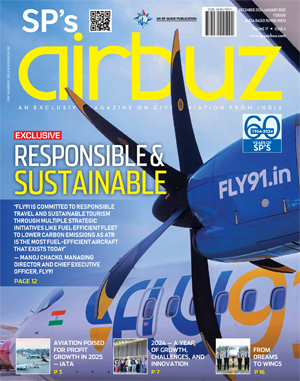Fuel - Fuelling Woes

In the absence of willingness by the Central Government to reduce tax on ATF, it may not be reasonable to expect the states to acquiesce to suggestion in this regard by the MoCA
The price of aviation turbine fuel (ATF) in a deregulated market in India has been rising steadily, in tandem with the price of crude in the international market. Compared to the other aviation hubs in the region such as Dubai, Singapore, Kuala Lumpur and Bangkok, the price of ATF in India today is on an average 60 per cent higher. This is primarily due to the fact that over and above the Central taxes on ATF, individual states also impose their own taxes that are not uniform and in some cases are as high as 35 per cent. For an Indian carrier, the expenditure on ATF constitutes around 45 to 50 per cent of total operating cost which compared with other nations, makes operating an airline in India relatively a more expensive business. Each time the price of ATF is revised upwards, it makes a bigger dent in the wafer thin margins at which Indian carriers currently operate. As a thumb rule, a 10 per cent increase in the price of ATF impacts operating cost by about four per cent.
It is no secret that barring one, all Indian carriers have been in financial distress for some time with the national carrier Air India and Kingfisher Airlines in the lead. As per projections by the Centre for Asia Pacific Aviation (CAPA), collectively, the carriers are likely to lose up to $3 billion ( Rs. 15,000 crore) in the fiscal year ending March this year. Airlines hold high price of ATF as a major factor contributing to these staggering losses. The situation had reached a point where the very survival of the industry was seriously threatened. Not in a position to ignore the problem any longer, the government appears to be finally turning its attention to address the issue. This is evident in the slew of decisions taken recently by the government that will hopefully usher in profound changes and help the airline industry in India to survive.
The first major and long overdue step was acceptance by the government of the demand to permit foreign airlines to pick up stake in Indian carriers up to 49 per cent. This decision if finally cleared by the Cabinet will ease the immediate problem of funds that are not easily available from financial institutions in India. The announcement on the subject made by Ajit Singh, the Minister for Civil Aviation, after the meeting of the Group of Ministers (GoM) on February 7, 2012, sent airline stocks soaring even as the sensex was on a downslide.
The second step was clearance by the GoM on February 7, 2012, of the proposal to allow Indian carriers to import fuel directly for their own use. The issue will soon be placed before the Cabinet for final clearance. Airlines have for long been lobbying with the government to introduce a tax regime common to all states across the nation pitched at a level that is reasonable. Facility to airlines to import fuel directly for their own needs will rid them of the liability of paying taxes to the states and literally kill two birds with one stone. While direct import of fuel by airlines is expected to reduce operating costs by an estimated 13 per cent, airlines would have to create infrastructure for storage at their operating locations as also their own transportation and refuelling systems. This will require considerable investment by airlines and duplication of infrastructure already existing with the oil companies. Deprived of revenue, the oil companies are unlikely to take the decision kindly and oblige the airlines in this regard.





